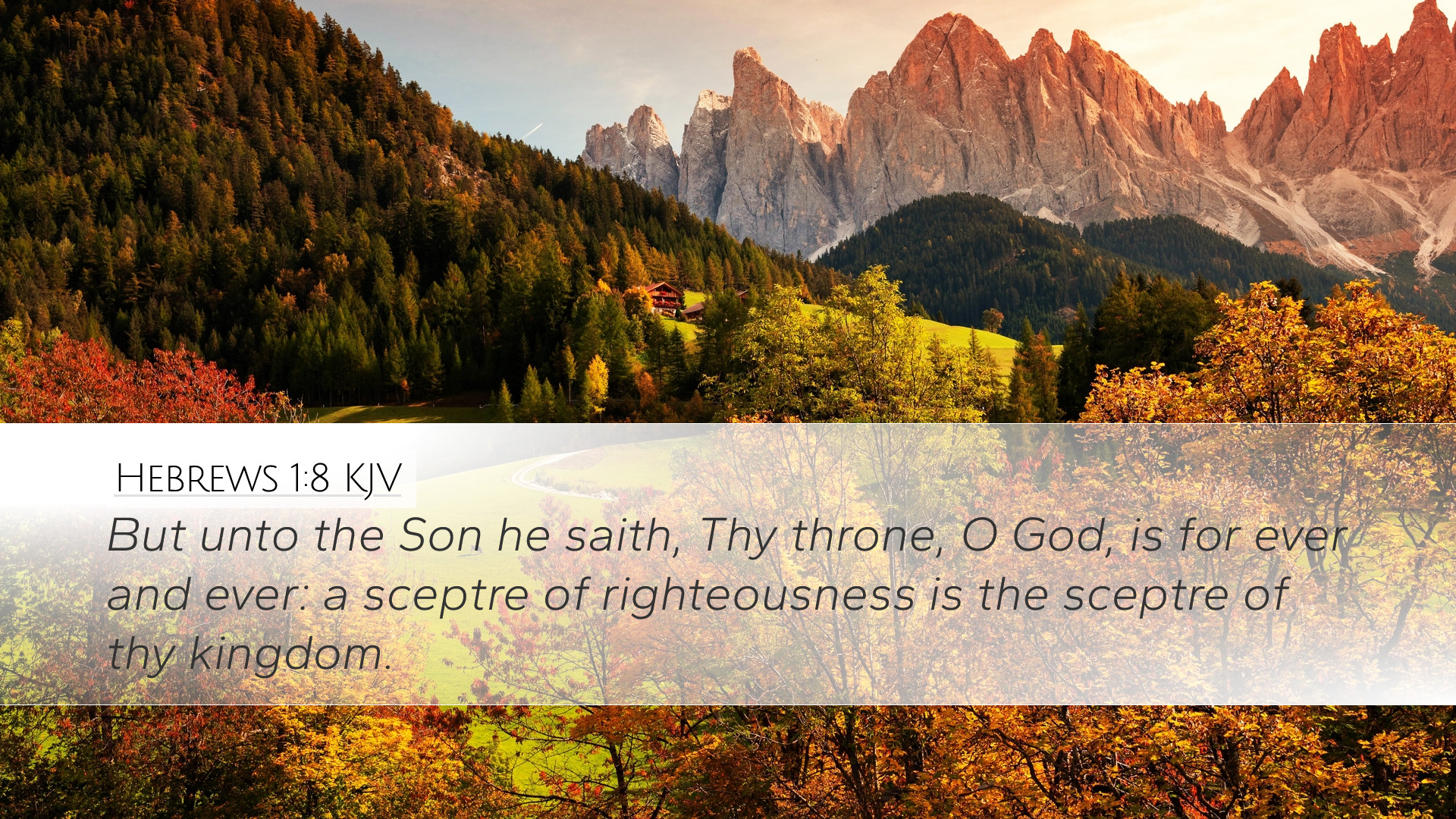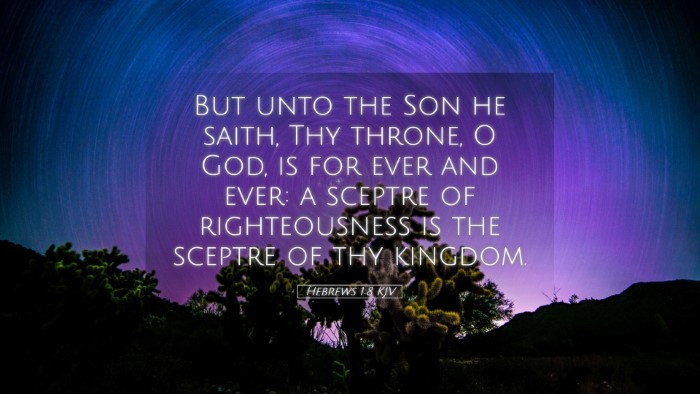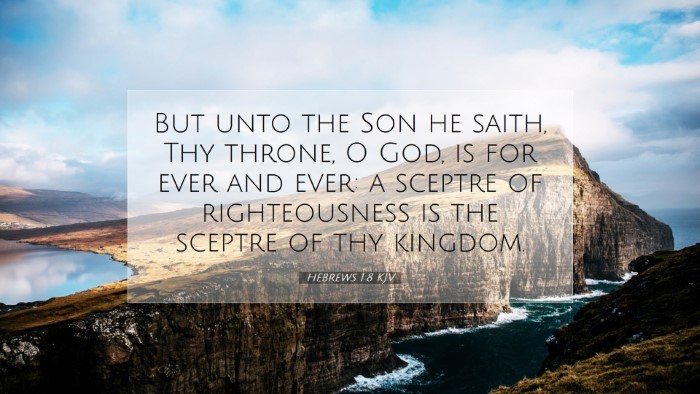Old Testament
Genesis Exodus Leviticus Numbers Deuteronomy Joshua Judges Ruth 1 Samuel 2 Samuel 1 Kings 2 Kings 1 Chronicles 2 Chronicles Ezra Nehemiah Esther Job Psalms Proverbs Ecclesiastes Song of Solomon Isaiah Jeremiah Lamentations Ezekiel Daniel Hosea Joel Amos Obadiah Jonah Micah Nahum Habakkuk Zephaniah Haggai Zechariah MalachiHebrews 1:8
Hebrews 1:8 KJV
But unto the Son he saith, Thy throne, O God, is for ever and ever: a sceptre of righteousness is the sceptre of thy kingdom.
Hebrews 1:8 Bible Commentary
Hebrews 1:8 - Analysis and Commentary
Text of Hebrews 1:8 (NKJV): "But to the Son, He says: 'Your throne, O God, is forever and ever; a scepter of righteousness is the scepter of Your kingdom.'
Introduction
This profound verse is one of the key christological declarations found in the book of Hebrews, presenting the supremacy of Christ in relation to God and His eternal kingdom. The author of Hebrews draws upon Psalm 45:6-7 to elucidate the divine authority and reign of Christ as the Son of God.
Exegesis of Hebrews 1:8
1. The Divine Address
Hebrews 1:8 begins with a divine declaration directed towards the Son, emphasizing the relationship between Christ and God the Father. This phrase, "But to the Son," distinguishes Christ from the angels previously discussed, highlighting His unique position and status.
2. Your Throne, O God
In this address, the Father calls the Son "O God," affirming the divinity of Christ. Matthew Henry notes the significance of this affirmation, asserting that Christ is addressed with titles that reflect His godhood and authority. This establishes the foundation for the understanding of the Trinity, where the Father acknowledges the Son's divine nature.
3. A Kingdom Established on Righteousness
The text continues with "Your throne... is forever and ever." This declaration relates to the eternal sovereignty of Christ, indicating that His reign is not temporary but everlasting. Albert Barnes emphasizes that the "scepter of righteousness" symbolizes Christ's just rule over His kingdom, where righteousness and justice are paramount. This aligns with Old Testament prophecies concerning the Messiah's reign.
4. Implications of His Reign
The significance of the throne of God and the scepter of His kingdom serves as a reminder of the enduring nature of God's promises and the stability of His rule. Adam Clarke comments that the reference to "scepter" not only denotes authority but also highlights the moral integrity upon which Christ’s kingdom is built.
Theological Implications
Hebrews 1:8 offers deep theological insights into the nature of Christ and His relationship to the Father. The implications are manifold:
- The Deity of Christ: The unmistakable claim of Christ’s divinity is crucial for understanding His role in salvation.
- Assurance of His Eternal Kingdom: Believers find comfort in the promise that Christ reigns eternally, providing a foundation for hope and faith.
- The Nature of His Rule: The righteousness associated with His scepter challenges believers to reflect on their own lives in light of Christ’s justice and holiness.
Practical Applications
For pastors, theologians, and students of the Bible, this verse offers a framework for preaching and teaching about Christ's sovereign reign:
- Emphasizing Christ's Sovereignty: In sermons, it is vital to present Christ as the ruling authority in every aspect of life.
- Encouraging Ethical Living: The righteousness of Christ's kingdom serves as a model for ethical behavior that ought to characterize all believers.
- Communicating Hope: Remind congregants of the eternal nature of Christ's kingdom, offering hope in times of trial and adversity.
Conclusion
Hebrews 1:8 encapsulates essential truths about the nature of God’s Son, His eternal reign, and the righteous governance of His kingdom. Drawing upon public domain commentaries enhances our understanding of this significant scripture, inviting deeper reflection on the majesty of Christ and His implications for our faith.


